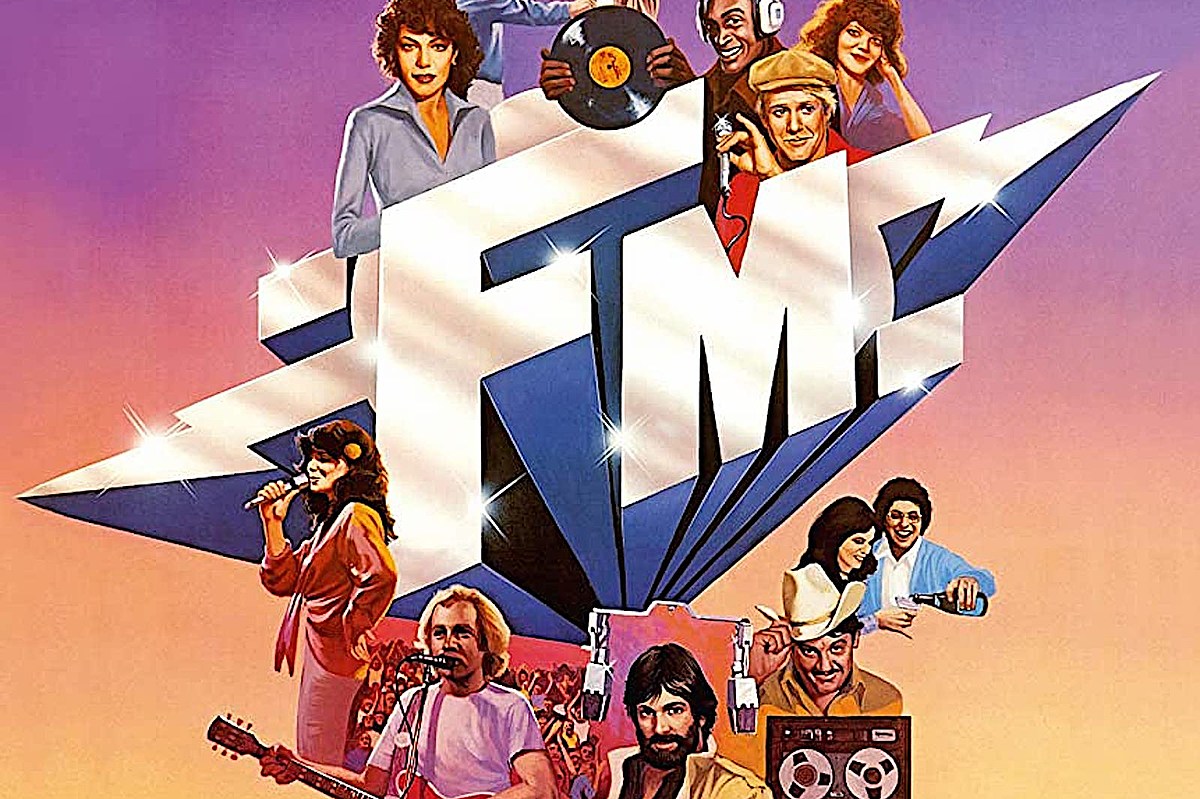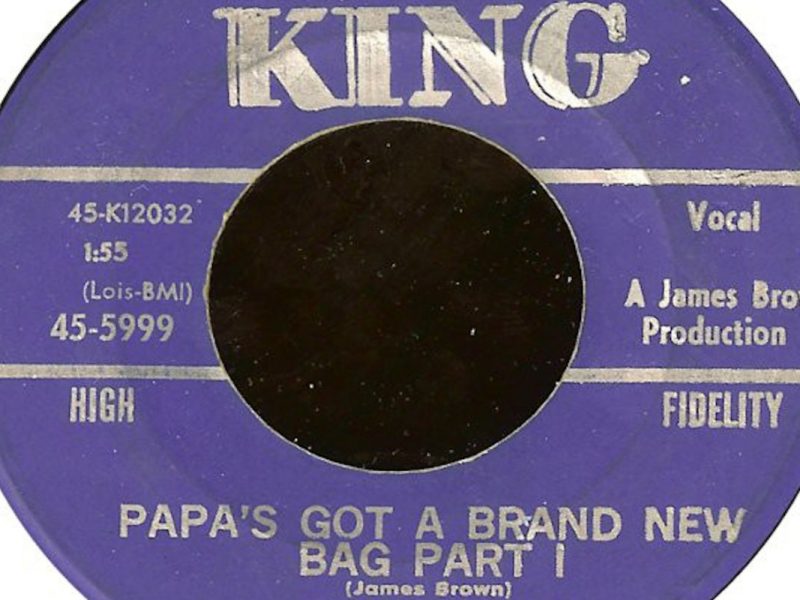In the strange world of Hollywood, sometimes films fail when they really shouldn’t and sometimes the most famous thing about them – like the nodding-man meme from Jeremiah Johnson – don’t have much to do with what they’re really about.
Such is the case with FM, which debuted in theaters on April 28, 1978, was unjustly trashed by critics and audiences, but then went on to spawn a soundtrack that went platinum and reached the top five on the Billboard charts.
The movie itself is a quintessential ’70s affair that never quite manages to bring all of its pieces together, but is certainly far better than is suggested by its reputation – which ranges from bad to simply forgotten. FM tells a shaggy-dog story of band of anti-authoritarian DJs at a Los Angeles radio station. Jeff Dugan (Michael Brandon) manages the place and is an expert at giving their rock ‘n’ roll audiences what they want.
Also helming the turntables are characters played by a cast including Martin Mull, Alex Karas, Eileen Brennan and Cleavon Little. Mull turns in an absolutely fantastic performance as Eric Swan, a DJ who dreams of moving up in the world to become a game-show host and locks himself in the broadcast booth at one point to moan about his heartbreak to the station’s confused listeners.
For the first two-thirds of its runtime, FM feels like a mix between an ensemble piece in the Robert Altman mode and a classic ’60s and ’70s humans-against-the-corporate-machine flick in the vein of a more easygoing, comedic Network or even Easy Rider.
Watch the Trailer for ‘FM’
Each of the DJs has a story line involving an element of their personal lives, and the station is under threat by management of the owner corporation, which is trying to force Dugan to play advertisements made by the Army. (“The only time I’ve ever said no to you before is when you wanted me to come work for you,” deadpans Dugan, in an oblique Vietnam War reference.)
It’s fairly standard stuff for the time, but is elevated by the way in which it manages to capture something of the feel and importance of rock ‘n’ roll on the radio in the late ’70s.
The plot involves live performances by Jimmy Buffet and Linda Ronstadt, and in both cases it moves into concert-film mode, giving the performers plenty of screen time. Ronstadt, in particular, shines with live versions of the Rolling Stones’ “Tumbling Dice” and Warren Zevon’s “Poor Poor Pitiful Me” – both of which are included on the soundtrack. There are also appearances by REO Speedwagon (who give a record signing at Tower Records) and Tom Petty (who drops into the station for an interview).
In the film’s final reel, things move into a mock-heroic register. Dugan quits instead of giving airtime to the Army ads, and the other DJs protest by staging a sit-in at the station. They barricade the doors and play commercial-free music. Soon, the cops and corporate are outside, as is a huge crowd of fans.
The ending feels contrived, as the wealthy industrialist who owns the management company is so moved by the loyalty Dugan inspires in his fans that he decides to let him keep running the station his way. But that’s only because what came before has been handled skillfully enough that we’re expecting a touch more realism and a touch less sentimentality.
Listen to Steely Dan’s ‘FM’
Overall, FM actually works far better than many similar ones from the time that received more acclaim. Director John A. Alonzo – better known as a cinematographer who shot numerous classics, including Chinatown, Harold and Maude, Scarface and Steel Magnolias – gets strong performances out of his actors, and keeps things moving at an entertaining pace.
Anticipating things like Airheads and Boogie Nights from an entire generation later, FM touches on the seismic events that were beginning to shake the entertainment world as the ’70s rolled over and woke up as the ’80s: increasing corporate control of entertainment, and the question of the independent spirit of the music itself. The film has no way of knowing this, of course, but it also nicely serves as a kind of eulogy for the era of the dominance of radio itself, which would of course be eclipsed by the emergence of MTV a few years later.
Yet Hollywood is a mercurial place. Audiences didn’t respond to the movie, and it quickly sank beneath the surface of the cultural consciousness. The soundtrack, however, did not.
Easily one of the best ever assembled, the soundtrack includes a fantastic sampling of ’70s rock. In addition to the Ronstadt live tracks and Buffet doing “Livingston Saturday Night,” Steely Dan performs “FM (No Static at All)” – which was written for the film – and “Do It Again.” Also featured are Petty’s “Breakdown,” Bob Seger’s “Night Moves,” Steve Miller’s “Fly Like an Eagle,” the Eagles’ “Life in the Fast Lane,” Boston’s “More than a Feeling,” the Doobie Brothers’ “It Keeps You Runnin’,” Queen’s “We Will Rock You” and more.
Unsurprisingly, all of this added up to a hit record. It’s just a shame that the film couldn’t quite elevate itself to the level of its own soundtrack and was so quickly forgotten. Otherwise, we’d be talking about a stone-cold cult classic that captured an important aspect of the history of rock in the ’70s.
The Best Rock Movie From Every Year
A look at the greatest biopics, documentaries, concert films and movies with awesome soundtracks.
25 Interesting Rock Movie Facts



